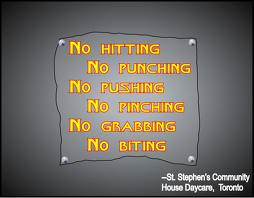Rules. They’re everywhere in writing. As you attempt to refine your craft, it’s easy to feel flummoxed by the rules and the writers who enforce them.
Writing Tip for Today: Don’t use ly words, always use action beats instead of attributions, don’t describe a POV character observing something–just observe it. These and other writing “rules” can feel restrictive and make a writer self-conscious or even paranoid. How do you know which rules are set in stone and which can be bent now and again?
- When You Draft, Toss All Rules. This is the old “junk it through,” write a s***y first draft advice. It’s meant to help writers produce a lot of word count, defeat writer’s block and keep affected or self-conscious writing at bay. When you draft (create), don’t allow your editor self (or a well-meaning critique partner) to derail your originality, your momentum or your enthusiasm. You can edit later at your leisure.
- When You Revise, Read Aloud. Reading your work aloud is a great way to catch errors, sure. But you can also use it to try out different ways of expressing things. Take out all your “lys” or what-have-you and read the piece. Put some back and read it again. Which sounds best to your ear? Remember, you are the one whose name goes on the byline. Be proud of your work, and try not to cave to criticism that is a matter of taste.
- Master Your Craft. Students often ask me why they should adhere to writing rules when such-and-such famous author doesn’t do the same. The answer is that most if not all of the “famous authors” started out like the rest of us. They had to learn their craft, learn the rules. After they master the craft, some authors do color outside the lines or otherwise “break” rules. Master your craft, and then experiment.
Remember, there are only two kinds of writing: Writing that works and writing that needs work.







I like the quote about two kinds of writing. But lately I’ve been confused by who is to judge the difference between the two. For all the people, mostly editing, agent and publishing professionals, who have read my manuscript, I get a mixed review. It’s hard to know how many tails to chase when some say it needs work and some say it’s very good. Some like lots of dialogue, some don’t. Some want more description, some want more showing. It’s hard to know how much revision to do based on others judgements on my writing. Any advice?
Jan,
The situation you describe can be very frustrating. Overall, I usually think hard about a change if the same feedback is coming from several sources. Otherwise it’s an “author call,” and may reflect the level of mastery of the one giving feedback. You’ve no doubt heard the expression, “A little knowledge is a dangerous thing?” I think it’s common for writers to learn a bit of craft and then zealously defend that bit of craft. That’s why I say it either works or needs work. If it’s against the “rules” but somehow works, I’d stick with it. If several writers give the same feedback, maybe you should consider the change. But many writers (myself included) must be on guard, as we aim to please like everyone else. Don’t be like the man who got on his donkey and then rode off in all directions! Hope this helps. Best, Linda
Thanks Linda,
Yes, that helps me understand that I don’t have to jump into changing things on just one person’s opinion. Actually, most of the other writers that have read the MS like the way I use a certain style. You are right, I need to stay focused on balancing the rules with finding my voice. I do tend to be a pleaser, and I don’t really break the writing rules for the most part. I think it’s a matter of accepting different writing styles and making sure whatever I write “works”.
Thanks again!
Jan